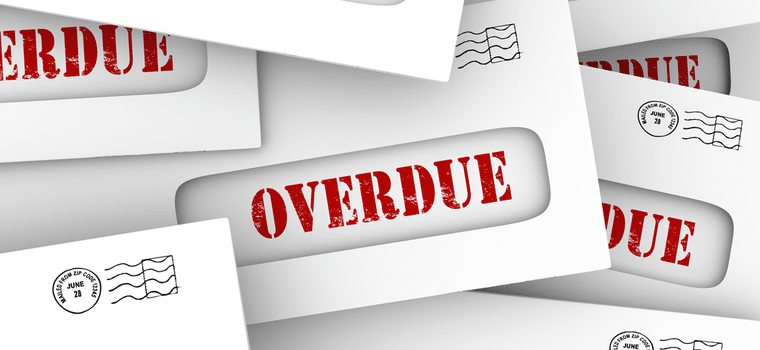Your payment history has the biggest impact on your credit – making up 40% of your overall credit score. So late payments on your credit report are a big red flag to lenders and creditors that you’re a potential risk. The frequency of your tardiness and the number of days you’ve been late are also important indicators of your creditworthiness.
Get the facts about what happens if you pay your bills late so you can put a plan in place to take care of debt by the due date.
What Is a Late Payment Really?
Creditors provide a due date to give you a clear target for getting your payment to them. Many creditors also provide a grace period after the due date to allow you more time to pay before they consider it technically late. If the money arrives after that date, or after a grace period, it’s considered late.
- Missing a payment by a day or two is like arriving at a party a few minutes after it’s started. Missing the payment by weeks or months is like showing up after everyone has left. In other words, getting the payment in one day late — or even six days late — likely won’t hit your credit report or affect your scores. However, it may cost you a late fee and could increase your interest rate with creditor to whom you paid late.
What Happens If I Pay My Credit Card Late?
The numbers of days your credit card bill goes unpaid will impact your credit score. Here’s a breakdown of what happens when your credit card payments are late.
- 30 days unpaid: A single late payment reported by a creditor will remain on your credit report for seven years — but has the greatest impact on your score right when it happens. Missing several credit card payments in a month will hurt your scores even more.
- 60 days unpaid: A 60-day late payment causes more damage. But if it’s a one-time occurrence, the consequences will fade over time.
- 90 days unpaid: This is where things start to get serious. A 90-day late payment can damage your credit score for seven years. The scoring model considers a 90-day late payment an indicator that you’re likely to be late again, which will lower your credit score.
- 120 or more days unpaid: Payments later than 90 days won’t do additional damage to your score, but there is a ripple effect that will. Once a debt is this far behind, it usually results in what’s known as a charge-off. Once a charge-off is reported to the credit bureaus, your scores will drop even further. Be aware that a charge-off does not free you from making payments. You’re still on the hook for your outstanding credit card debt.
- Type of debt: It’s worth noting that your credit score may also be affected differently depending on the type of debt you pay late. For instance, missing a mortgage payment may do more damage to your scores than missing a credit card payment as it’s considered a much larger investment and higher risk of default.
Get Late Payments Removed From Your Credit Report
It’s possible to get late payments removed from your credit report, but it takes time, effort and patience. The first step is to ask the lender or creditor for forgiveness. You can do this by calling or sending a letter.
Before you reach out, have your documentation ready so you can effectively make your case. Some lenders or creditors will be flexible if they understand the late payment was due to an unforeseen circumstance, such as a medical emergency or a natural disaster, or if you can show that you have a history of making payments on time. However, a lender is not obliged to remove any negative information.
What Is a Goodwill Adjustment?
Sending a goodwill adjustment letter can be an effective way to persuade a creditor to remove the derogatory mark from your credit report.
The letter should be written in a positive and courteous tone and in simple terms explain what led to your missed payment. For example, if you lost your job or needed a costly medical procedure, the letter should provide this information so the creditor can get a better understanding of your situation. Explain why protecting your score is important to you, so the creditor can see that you are thinking about a financially responsible future.
The Importance of Your Credit Score
Late payments can negatively impact your credit score for years. Make your payments on time, every time — and catch up on the debt you owe as soon as possible.
Your credit score is important to your long-term financial health, so make it a priority to leave late payments behind.





